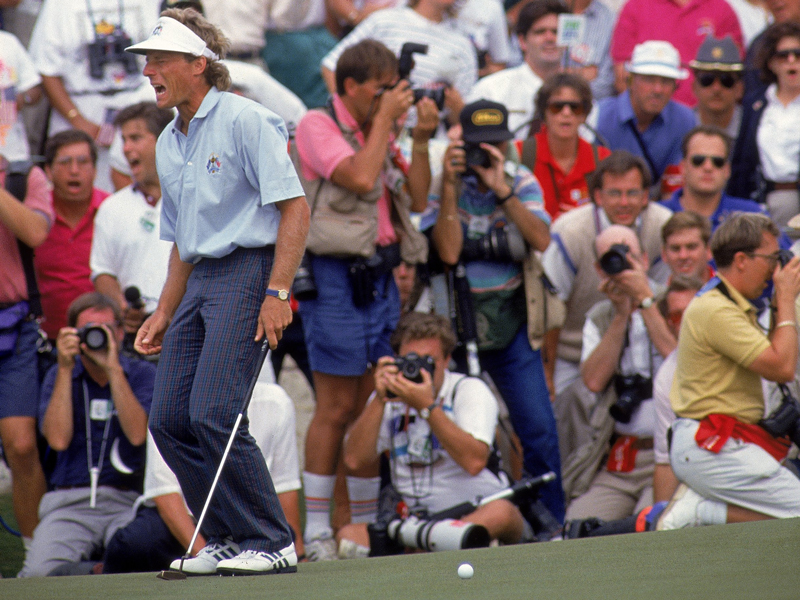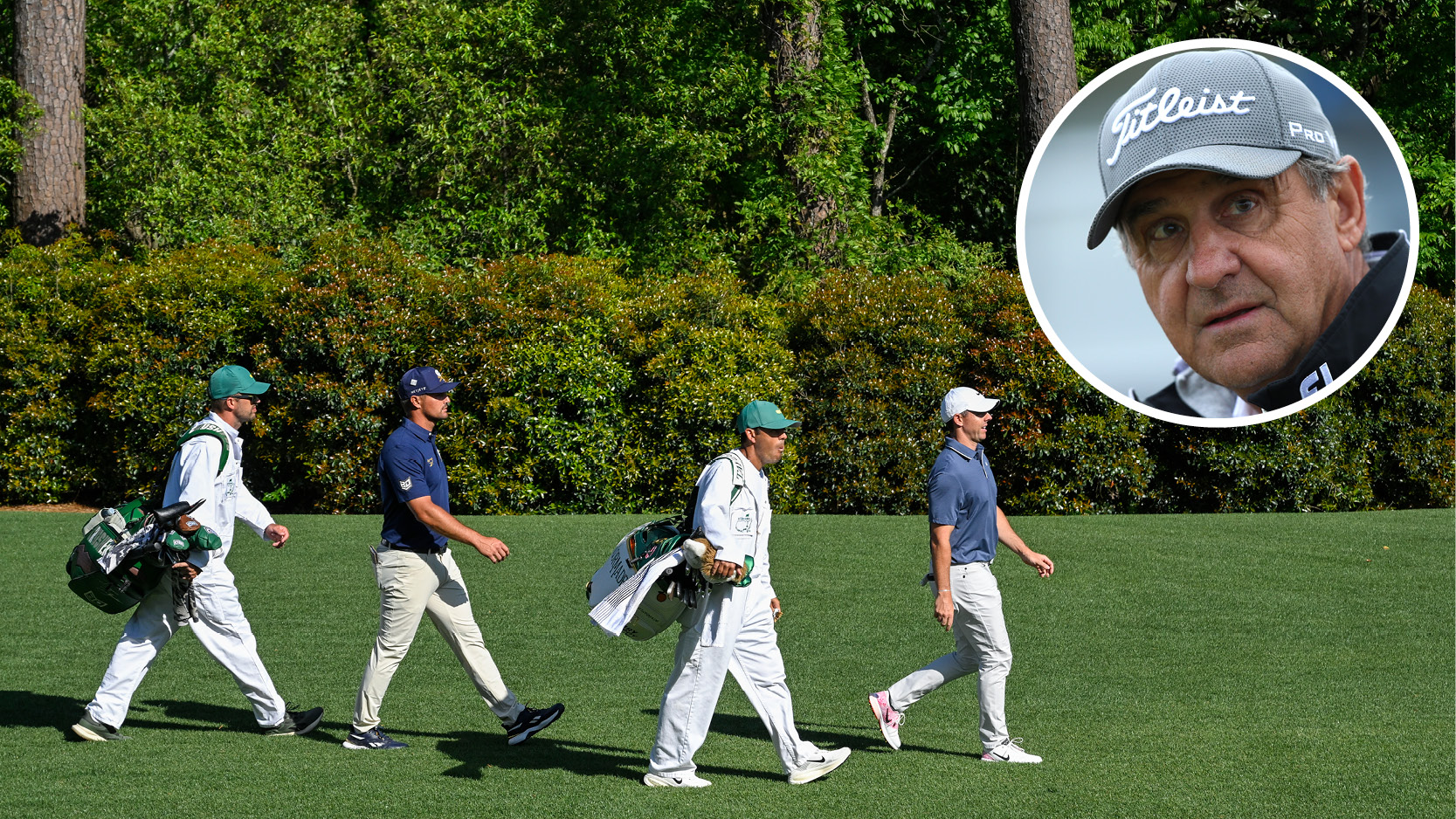Should We Be Making Golf Harder For The Pros?
Would it be more exciting if it was tougher?


Golf Monthly regulars Jeremy Ellwood and Fergus Bisset debate whether or not toughening up the game would deliver greater excitement.
Should We Be Making Golf Harder For The Pros?
Yes says Jeremy Ellwood
“I’m sort of honestly sick of coming back over to The European Tour and shooting 15-under par and finishing 30th. I don’t think the courses are set up hard enough. There are no penalties for bad shots.”
The words of then World No.2, Rory McIlroy, after 2019’s Alfred Dunhill Links Championship.
Okay, perhaps not great timing after an event where the courses are deliberately set up on the lenient side, but McIlroy did express his sentiments a little better the next day:
“Strategy, course management and shot-making are important aspects of tournament golf that are being slowly taken out of the game at the top level, not just in Europe but worldwide.”
Get the Golf Monthly Newsletter
Subscribe to the Golf Monthly newsletter to stay up to date with all the latest tour news, equipment news, reviews, head-to-heads and buyer’s guides from our team of experienced experts.
I guess it all comes down to whether you want to see a birdie-fest every week, or the top pros having to work a little harder, allowing the most skilled, both physically and mentally, to really shine.
Exciting though birdies are, I would favour the latter.
That said, I’m not for anything that makes golf appear to be discouragingly difficult at a time when it needs to do all it can to retain and attract interest - rather a few tweaks so players don’t get away with quite so much.
The R&A and USGA are investigating the options for reducing distances at an elite level.
But one way to make the game more challenging must surely be, as Rory suggests, to set courses up so errant shots are more likely to get punished, forcing players to think a little rather than blasting away with driver and then dealing with whatever they’ve left themselves.
If what they’ve potentially left themselves is just a little more undesirable, we might get a little more balance back into the pro game.
Should We Be Making Golf Harder For The Pros?
No says Fergus Bisset
People watch professional golf to see an activity they enjoy performed at the highest level.
Spectators want to marvel at the players’ ability to produce shots and scores they can only dream of.
They want to see booming drives, birdies and eagles – It’s what makes golf exciting.
Anything that reduces that level of excitement would be detrimental to the overall health of the sport.
To be a captivating spectacle, appealing to a broader spectrum of the population and a new generation in particular, pro golf must be inspiring.
The casual viewer is far more likely to keep watching and a youngster more likely to feel the urge to pick up a club if they’re exposed to high-octane, low-scoring tournaments.
Humans will steadily improve at anything they apply themselves to.
Striving to progress is in our nature. Like any other physical activity, golfers develop new methods, techniques and technologies to surpass their rivals.
As such they continue to get better – To hit the ball further, straighter, closer. Seeing how good they can get is compelling and it would be counter-intuitive to place unnecessary restrictions on this advancement.
The excellence of the top pros is undoubtedly enhanced by the fabulous modern equipment at their disposal.
But their brilliant play is by no means wholly because of it.
They are trained athletes focused on squeezing everything possible out of their games.
Personally, I like watching these players tackle courses I can relate to.
When they play the Old Course at St Andrews and shoot the lights out, my appreciation of their supreme skill is heightened as I have some sort of understanding of the test they’re facing.
I want to see how good the top golfers can be, using equipment I could purchase over courses I recognise.
If they can finish a four-round tournament 30-under-par, that’s simply incredible and a fabulous showcase of sporting excellence that should be celebrated rather than questioned.

Fergus is Golf Monthly's resident expert on the history of the game and has written extensively on that subject. He has also worked with Golf Monthly to produce a podcast series. Called 18 Majors: The Golf History Show it offers new and in-depth perspectives on some of the most important moments in golf's long history. You can find all the details about it here.
He is a golf obsessive and 1-handicapper. Growing up in the North East of Scotland, golf runs through his veins and his passion for the sport was bolstered during his time at St Andrews university studying history. He went on to earn a post graduate diploma from the London School of Journalism. Fergus has worked for Golf Monthly since 2004 and has written two books on the game; "Great Golf Debates" together with Jezz Ellwood of Golf Monthly and the history section of "The Ultimate Golf Book" together with Neil Tappin , also of Golf Monthly.
Fergus once shanked a ball from just over Granny Clark's Wynd on the 18th of the Old Course that struck the St Andrews Golf Club and rebounded into the Valley of Sin, from where he saved par. Who says there's no golfing god?
-
 Volvo China Open 2025 Picks, Odds And Predictions
Volvo China Open 2025 Picks, Odds And PredictionsFollowing a break for The Masters, the DP World Tour returns for the final two weeks of its Asian Swing and the Volvo China Open is the penultimate event
By Jonny Leighfield
-
 Rory McIlroy's Sports Psychologist Explains Why He 'Didn't Talk' To Bryson DeChambeau In Masters Final Round
Rory McIlroy's Sports Psychologist Explains Why He 'Didn't Talk' To Bryson DeChambeau In Masters Final RoundDeChambeau raised eyebrows at Augusta National when claiming that McIlroy wouldn't engage in conversation during the final round of The Masters
By Jonny Leighfield